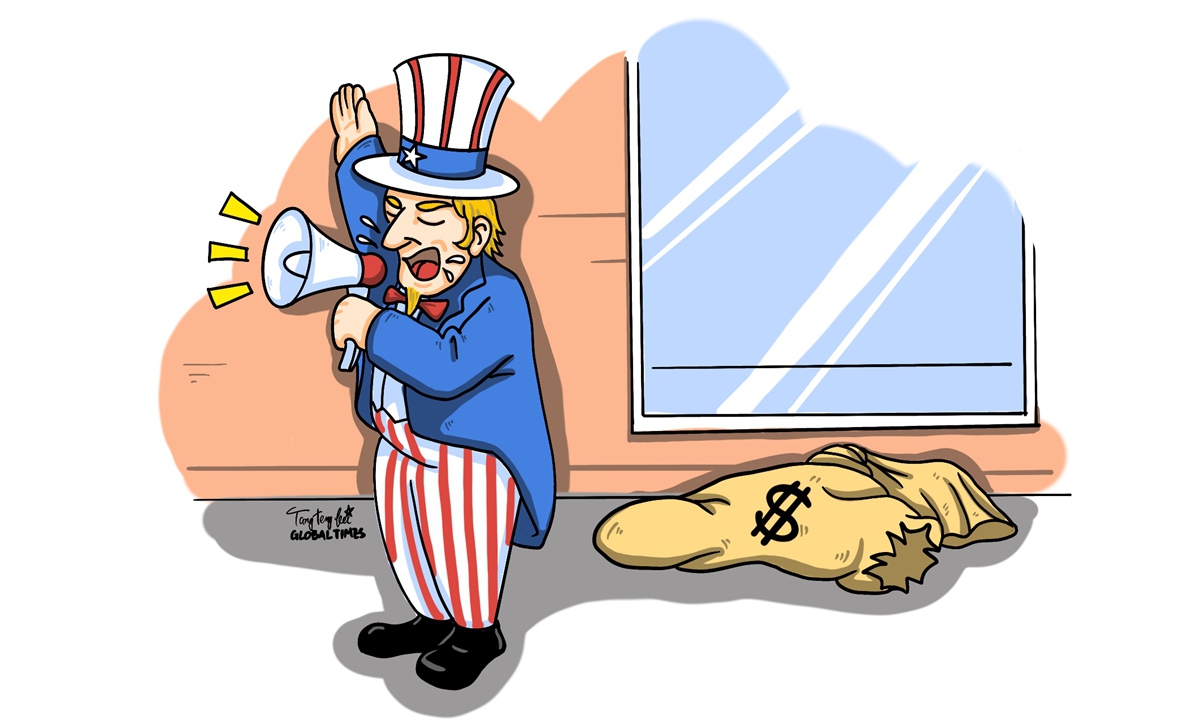
Illustration: Tang Tengfei/Global Times
While it is commendable that the US may finally make progress in supporting the infrastructure needs of some developing countries, its attempt to fuel an "infrastructure rivalry" won't deter China's determination to push forward the Belt and Road Initiative (BRI).The US plans to invest in five to 10 large infrastructure projects in some selected developing countries from January next year as part of the Build Back Better World (B3W) initiative launched by the Group of Seven, the Reuters reported on Tuesday, citing a senior US government official.
A US delegation identified at least 10 promising projects in Senegal and Ghana, which could be finalized during a G7 meeting in December, the official said.
Given the headwinds holding back economic recovery and huge infrastructure needs in the post-pandemic era, if the US adopts a positive attitude to help developing countries with their infrastructure projects, then the B3W initiative, as long as it isn't accompanied by hidden geopolitical and zero-sum maneuvers, could be compatible or even complementary with other global infrastructure cooperation programs.
Yet, if the US' untold purpose behind its infrastructure plan is to counter China's BRI, its attempt will be doomed to fail.
What the US said or did to promote new infrastructure initiative won't affect China's pace when it comes to pushing forward with the BRI, which will not slow down and change course.
In fact, it is not uncommon for the US to float various initiatives and programs aimed at containing China's influence. The Prosper Africa, the Blue Dot Network, the Economic Prosperity Network, and the Clean Network, to name just a few, but most haven't seen any substantial progress.
In June, the G7 launched the B3W initiative, which is widely seen as an alternative program designed by the US and its key allies to offset the achievements and results of the BRI.
However, it is questionable whether the US infrastructure plan under the B3W could shortcut the BRI. The bipartisan wrangling in the US that has added so many difficulties to the passage of the Biden administration's domestic infrastructure bill will make it nearly impossible for the US to finance overseas projects, while most infrastructure projects in the developing countries may be far from meeting the high standards set by the US.
Meanwhile, the UK and the EU are still struggling with their own domestic economic recovery, and with their own ageing infrastructure, domestic pressure will inhibit their ability to fund any large infrastructure projects abroad.
By comparison, China, with its robust economic growth and more than $3.2 trillion foreign currency reserve, is well positioned to push forward the BRI projects and to do its best to help the developing countries to build up infrastructure.
While the global coronavirus pandemic has brought negative impact on the construction of some ongoing BRI projects, the difficulties won't stop China's pursuit of connectivity, globalization and common prosperity through the BRI. And China is prepared to propel the undertaking with greater financial and human resources once the pandemic situation eases.
If the US politicians believe they are engaged in a kind of competition or rivalry, they had better make sure they muster sufficient support at home before funding overseas infrastructure projects.
